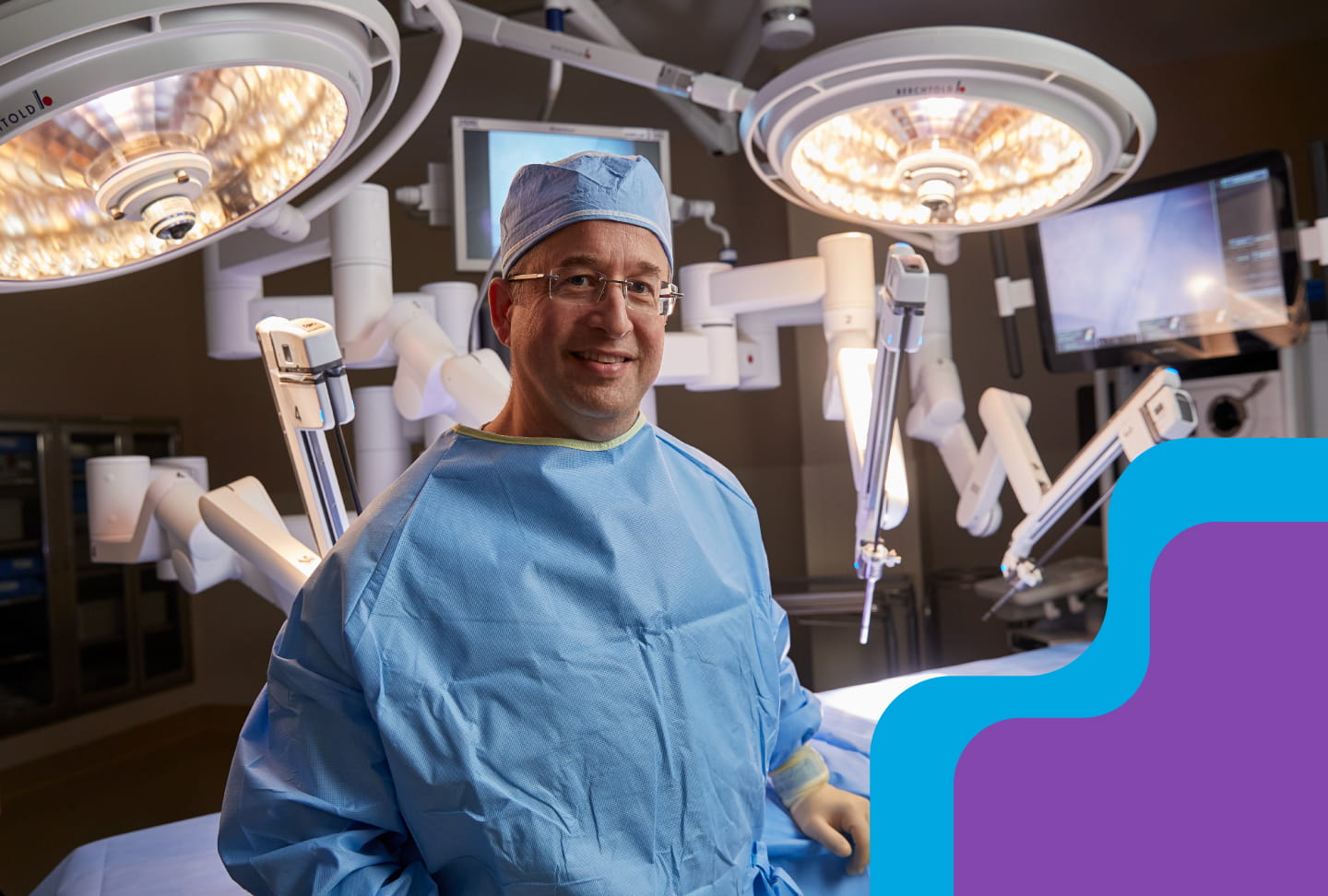Touch-sensitive technology. More precision. Better surgical images. A new robotic surgery platform at
Wellstar Kennestone Regional Medical Center
features all this and more. What does that mean for people in our community facing a complex surgery? Everything.
The Da Vinci 5 (DV5) platform allows experienced surgeons at Wellstar Kennestone to be even more precise during delicate procedures. Patients bleed less, heal with smaller scars and usually go home sooner.
“At Wellstar Kennestone, we’re redefining what’s possible in surgical care,” said Lorrie Liang, senior vice president and president of Wellstar Kennestone and Wellstar Windy Hill. “The DV5 demonstrates that we’re not just adopting advanced technology—we are advancing the standard of care across the region.”
What is robotic surgery?
Robotic surgery is a type of minimally invasive surgery. The surgeon sits at a console and controls robotic arms equipped with tiny instruments. A 3D camera magnifies the surgical area. This allows the surgeon to see everything in high definition.
Wellstar Kennestone is one of the first hospitals in Georgia to offer the DV5. However, robotic surgery is not new at the hospital. Our surgeons began using Da Vinci Surgical System platforms in 2007. Today, we offer 17 state-of-the-art Da Vinci robotic surgical suites at several hospitals and two outpatient surgery centers. We use the system for many surgeries, including bariatric (weight loss), cancer and urology procedures.
A clear difference
Dr. Fritz Jean-Pierre
has performed more than 2,500 bariatric surgeries in his career. And he’s excited about what the DV5 offers.
“The DV5 allows the surgeon to sense how much push-or-pull force they apply to delicate structures in the body,” said Dr. Jean-Pierre. “Essentially, the technology stops surgeons from putting too much strain on tissues as they maneuver the instruments. Less strain means less trauma and potential injury, leading to faster patient recovery.”
Dr. Jean-Pierre tailors surgery to each patient’s unique needs. The bariatric surgery he performs most often is the gastric sleeve. It involves removing a large portion of the stomach to limit food intake. Precision is essential, especially for patients who weigh more or have complex health conditions.
“After removing part of the stomach, the surgeon reconstructs the gastrointestinal tract. We use many sutures (stitches) to hold everything in place,” he said. “DV5 provides superior dexterity and control, leading to shorter, safer surgeries.”
Intuitive Surgical, the company that created the Da Vinci platform, designated Wellstar Kennestone as an “epicenter” for training in 2011. Surgeons from around the country come to Wellstar Kennestone to observe and learn robotic surgical techniques from Dr. Jean-Pierre and his colleagues.
The impact on outcomes
The DV5 allows surgeons to be more precise than ever, which affects patient outcomes.
Dr. Scott Miller,
a Wellstar urologist explained.
“The DV5 is ideal for many urologic procedures, such as prostate and kidney removal, bladder surgery and urinary tract reconstruction,” he said. “The improved range-of-motion and visualization features help us protect healthy tissues and nerves. As a result, we can lower the risk of serious side effects like infections and problems with bladder control and sexual function.”
Learn more about robotic surgery at Wellstar.



